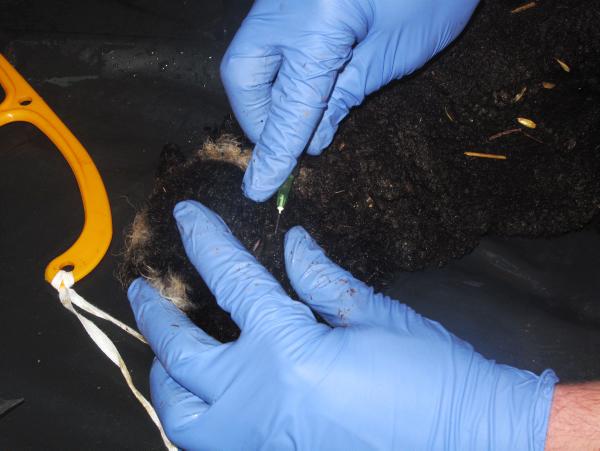These few weeks before lambing are usually like the calm before the storm. There are few things as frustrating at this time to the sheep farmer as a ewe with a “reed out” or prolapsed vagina. This is one of the most common pre-lambing problems.
The prolapsed vagina and uterus are commonly confused. The “reed out” is a prolapsed vagina about 10-20 cm in diameter and occurs in the last few weeks of pregnancy, before lambing. The “lamb bed out” is a prolapsed uterus and occurs only after lambing and is a large irregular structure usually extending below the hock.
Recently I had a flock with a major outbreak. The farmer typically dealt with two or three cases each year but was approaching double digits a few weeks out from lambing and was understandably worried. This condition is so frustrating and frequently has an unsuccessful outcome if not identified and resolved very quickly.
The one question is always, why? Unfortunately there is no single answer.
It’s a complex condition with many contributing factors: multiple lambs, ewes too fat or too thin, housing and limited exercise, grazing hill ground, short tails, previous difficult lambings, genetics, dietary oestrogens, and lameness resulting in excessive lying down. The most important cause is usually associated with feeding.
The prompt replacement of the prolapse and fitting a retaining harness is typically successful. Often an epidural, pain control and replacement by the vet is required in more persistent cases.
On a flock basis, the problem is quite often nutritional.
The availability of straw fed directly with ad-lib access, or through a diet feeder, or even straw bedding, can help in cases of sub-clinical ruminal acidosis. Poor-quality silage diets need to be improved. In general, this is something to discuss with your own vet if this is of concern.
This is one condition where attention must be clearly focused on prevention rather than treatment to improve production.
Nick Garvey works at Old Church Veterinary Hospital, The Mall, Ballyshannon, Co Donegal. Old Church Veterinary Hospital is part of XLVets. For information, see www.xlvets.ie





SHARING OPTIONS